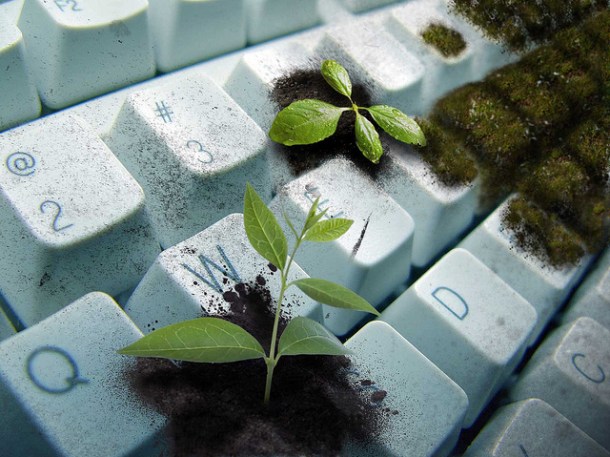There are two worlds on the Earth: the world of humans and the world of machines. Both want to survive and evolve. Both are governed by unknown forces, beyond fate, but nobody knows what they are. A god, energy, information?
Philosophy and science are concerned with human existence, but until recently, no one thought that technology could also be an organism.
For a long time, American technologist Kevin Kelly has been looking for the answer to one question. What is technology’s place in the universe? What does technology mean in our lives? The answer, after more than 20 years studying and publishing articles and books on the subject, is that technology is a system with the same complexity as a microscopic organism. “It is the ecosystem of all invented things”, he said in an email interview.
Kelly calls this entity the Technium and says that it is made up of millions of homes, millions of factories, millions of acres modified for agriculture and to feed livestock, trillions of motors, thousands of dams and artificial lakes, hundreds of millions of automobiles, quadrillions of chips, millions of cables….

None of these things can work independently. Everything is interconnected. Just like the living things in nature. Just like human cells. “Every bit requires the viability and growth of the rest of the technology”, writes Kelly. “There is no communication without the nerves of electricity. There is no electricity without the veins of coal mining, uranium mining, or even the mining of precious metals to make solar panels. There is no metabolism of factories without the ingest of food from domesticated plants and animals, and no circulation of goods without vehicles. This global-scaled network of systems, subsystems, machines, pipes, roads, wires, conveyor belts, automobiles, servers and routers, institutions, laws, calculators, sensors, works of art, archives, activators, collective memory, and power generators – this whole grand system of interrelated and interdependent pieces forms a very primitive organism-like system.”
And it is precisely that connection that gives them a sort of life. “A mobile phone, a shoe, or a pen are not alive”, says Kelly. “But the network of technological elements as a whole evolves over time under the same principles as life”. This is why Kelly believes technology could represent the seventh kingdom of nature.

The Technium is the accumulation of inventions that humans have created, according to Kelly, and society is as dependent on it as it is on nature. This entity, just like the Earth, “has its own agenda”, its own laws, its own evolution. At this point it’s not conscious, but with the evolution of artificial intelligence, the day will come when it starts to have its own tendencies. Tendencies that don’t respond to any reflection. They’re just there, just like, for example, the current reality that the Internet is a place given over to copying or tracking. It’s something that is beyond any decision or human prohibition, according to Kelly. That’s just the way it is, and what we need to do is try to make the most of it.
In terms of its behaviour, the Technium is not at all like humans. It acts under its own laws of evolution, based on technology. And even though people may intervene to direct technology in one direction or another, there is something inherent in it that makes it take its own path. This is what the researcher calls «What technology wants» (the same as the title of his book in which he explains his theory) and what it wants is this: to increase diversity, freedom and the capacity to choose, expand space, be ubiquitous, become something beautiful, increase its complexity, align with nature, accelerate evolution, and play the infinite game.
Kelly says that he sees the Technium as “the child of humanity” and feels that it is the mission of humans to educate it and teach it certain principles, because when it reaches a certain level, a certain maturity, it will be much more autonomous than it is today. It’s still a child, but it will soon become an adolescent and will ultimately leave home.
The Technium also has a decisive influence on human nature. Kelly remarks that we have to recognise that humans are being redefined by technical advances. And for this reason, in the end, understanding technology will help us to discover and understand human existence.
Images tec_estromberg / Theophilos









